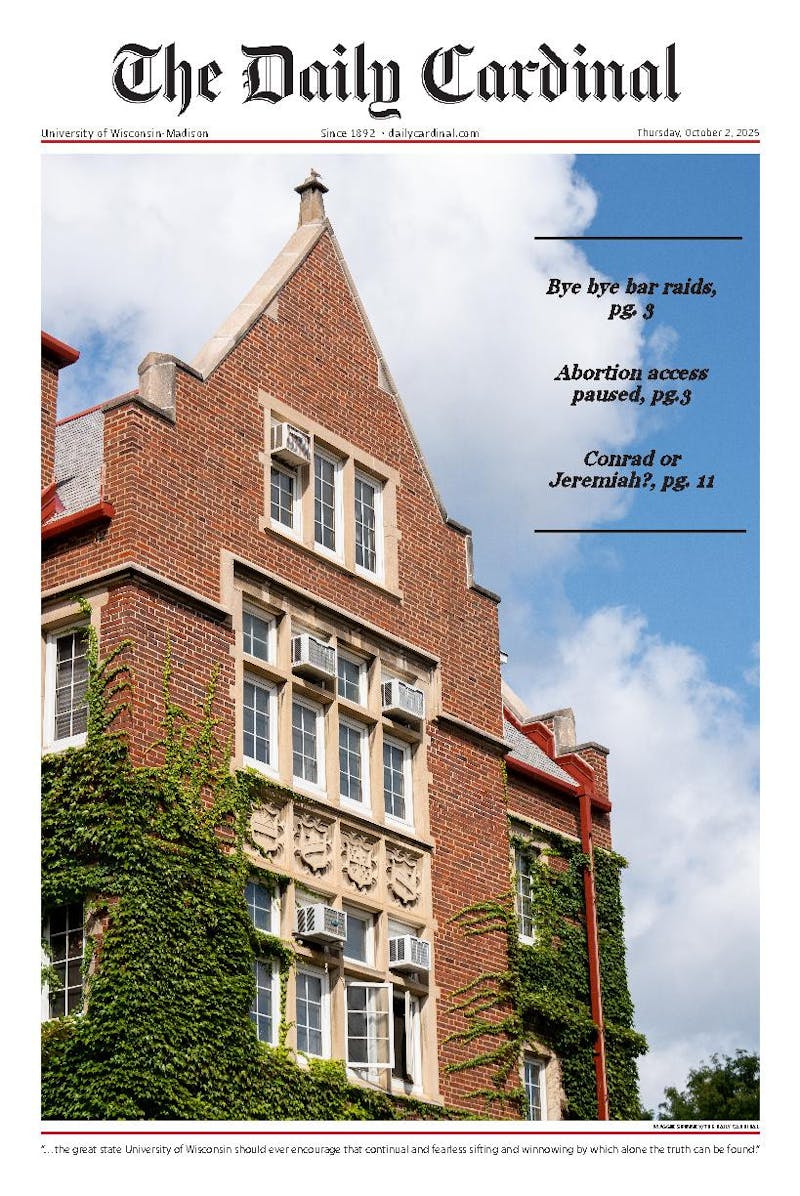My TA said every social movement needs a soundtrack. He was right, too. Mahalia Jackson's gospel outreach helped settle the tides for Martin Luther King, Jr.'s peaceful march to the U.S. Capitol. And don't forget that America's national anthem was the product of one of the greatest social movements of all time—the Revolutionary War, in which we Americans kicked the overbearing British off the debased island we rightfully pillaged and ransacked first.
And in 2011 we mostly remember the Vietnam War for its music, don't we? Creedence Clearwater Revival's ""Fortunate Son"" says as much as any modern news coverage of the draft process or the televised warfare at home and overseas. Chuck D later called rap music the ""CNN for black people,"" and the idea is the same—music can serve as an informative entity to any body of people. It is more accessible and easier to distribute than pamphlets or press conferences, so it fills the role of proliferating agendas the same way stirring pills into milkshakes helps my brother swallow Tylenol.
But already we have tension, because comparing Mahalia Jackson's and Chuck D's roles in the civil rights movement is disingenuous and incomplete. Despite being urged to expand, Jackson only sang gospel songs. Her religious devotion and dedicated temperance helped to inform the behavior in the peaceful and tolerant protests. On the other side, Chuck D used historical perspective to inform his music (and thus his audience). Jackson's music was in several ways apolitical—refusing to engage in the processes themselves, but happy to outline the righteous manners listeners could employ for more prosperous outcomes in whatever areas they so chose. Chuck D's music is decidedly political—It Takes a Nation of Millions to Hold Us Back is a forceful, attacking album that details the exact political
processes and motives that Jackson so stridently avoided.
But nowadays music is neither as fast nor as quickly digestible as social media, and there seems to have been some sort of Hegelian dialectic that produced actual protest music. For easy access you can trace most of it back to two people: Bob Marley and Joe Strummer. Marley, of course, focused more on the internal, humanistic rights involved, speaking to humans' inherent desire to be heard and creating an environment of activity and progress. Strummer reached that same environment of activity and progress, but through a more outward, problem-oriented base. Marley avoided most political entanglements and focused on basic human dispositions, while Strummer embraced political tension and used it to fuel most of his expansive catalog. So the two are like opposite, concentric circles in the Venn diagram of social-movement soundtracks we set up with Mahalia Jackson and Chuck D. How cool!
That distinction seems all but lost in outright protest music though, and never was that more clear than at Tom Morello's ""Frostbite and Freedom"" rally at Monona Terrace last Monday. As one of the openers, Ike Reilly, snuck in quick excerpts from Strummer's ""Know Your Rights"" (via the Clash's Combat Rock) into a pretty forced-sounding rendition of Marley's ""Get Up, Stand Up.""
And I think that's exactly what my TA was talking about, even if it came a few weeks beforehand. Every movement stems from a certain disposition, and its music ideally shares that internal turmoil and expresses it in a communal way. But now I propose a follow-up: What about in today's digitalized, increasingly divided market? Is it still enough to simply label something a ""labor movement,"" and thus designate it to Bruce Springsteen and all his blue-collar rock descendents? I'd say no, and that's what made Morello's stint so unfulfilling—these politics are too nuanced and popular music too divisive to make any sure grab at much of anything.
I've been down to the Capitol at least once every day since the budget repair bill entered the Joint Finance Committee, and I've been hearing a lot of Violent Femmes' ""Blister in the Sun,"" which is a great song, but a lazy choice based more on locality than purpose (the dudes are from Wisconsin, if that was unclear). But I've also heard a lot of Twisted Sister's ""We're Not Gonna Take It,"" which is surprisingly apt considering its pointed criticism of censorship and the infringements on First Amendment rights many protestors continually cite. But there's no way your boy is going to be sold that easily in his own column. No way.
Besides, I like to judge things by their ends moreso than their means. Had MLK's protests not remained peaceful, we wouldn't still be talking about Mahalia Jackson's level-headed influence, y'know? So as of now, it's really anybody's guess. Any day now we could be calling up ""Power to the People,"" ""Dancing in the Streets"" or (please please please) Andrew W.K.'s ""Party Hard"" as the logical end to an exhausting series of protests. But so far the protests have fallen on deaf ears, and the way things are going, the easy money is on John Cage's ""4'3''"", in which the performer stays the course, ignoring piano in front of him and happily denying the audience's pleas to, you know, do something with it.
Think Kyle is way off base and that Tom Morello really drew the protest together? Are you yearning for the days of MLK and Vietnam? Let Kyle know at ktsparks@wisc.edu.






